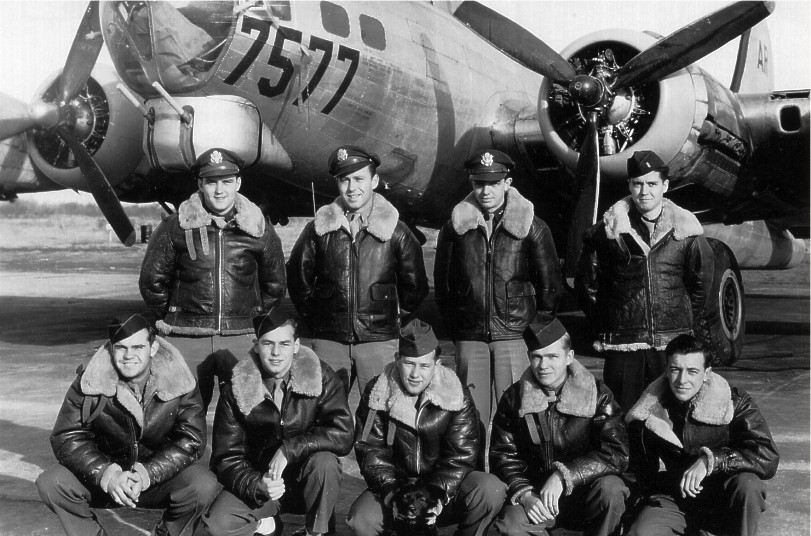Kansas Snapshots by Gloria Freeland - January 28, 2022
Decisions! Decisions!
Husband Art and I were in Wisconsin a few months ago with daughter Katie and husband Matt, when we decided to visit
one of Madison’s shopping centers. While waiting at a stoplight, Katie said we should turn right while Art suggested
going straight. As I watched Matt from my position in a rear seat, I sensed a momentary dilemma.
Since Matt and Katie moved to the area just last spring, Matt knew she was relying on Google Maps to guide her. But
Art had lived in Madison for years, and has traveled through the city almost every time we head to his hometown.
Setting aside the strictly logical aspect of whose suggestion to follow, there was also a social component to
navigate. Whatever route Matt chose, one party might feel as if their opinion was not as valued as the other's.
While that decision was hardly a momentous one, it illustrates how easily we can get ourselves into situations
where we must choose between options where the best choice is not clear.
Art often has shared a story about his uncle Pete, which was quite the reverse - where the stakes were high. As he
was returning from a bombing mission during World War II, Pete, the pilot of the B-17, noticed the fuel gauges were
edging near empty. It seemed clear he and his crew wouldn’t make it back to their base.
After calling on an emergency frequency established to help planes in such situations and receiving no response,
Pete decided he'd rather take his chances on a forced landing with the engines still running than to have to glide
in. Dropping through the English cloud cover, he was relieved to see an abandoned airstrip and set the plane down
with no difficulty.
The only man on duty said the field had been a fighter base, but the planes had all been recently moved to the
continent. But he did have aviation fuel. While fueling the plane, the fellow commented that the B-17's gauges were
set to show empty with somewhere around 20 minutes of flying time remaining. Pete said he wished he had known as
he could have reached their base.
Several years ago, I found myself in a predicament that arose from a cough. We already had our airline tickets for
a spring-break trip to Vermont, and I was hoping to leave an annoying cold and accompanying cough behind before
the trip. But after one particularly strenuous bout of coughing, I wrenched my back and the subsequent pain was
quite severe. I went to see the doctor the next day and was scheduled for an MRI late in the week. He told me he
probably wouldn't get the results until Tuesday.
Pain medication helped me through the weekend and by the time the doctor called, I was doing pretty well. In the
examination room, the doctor told me that I had damaged a disc in my back and that it was the worst one he had
seen all year. He had already scheduled my surgery!
Surgery would have meant the family trip would be cancelled, and I told the doctor I really wanted to go. Added to
that was the fact that I knew back surgery is frequently marginally helpful. When I shared my reservations, he
looked at me as if I was clearly out of my mind ... and then told me so in carefully-chosen words. I persisted and
then he excused himself. When he returned, he had a letter for me. He said, "Give it to the emergency-room doctors
this weekend when you are screaming in pain after your flight. It will let them know what your problem is."
Since our doctor was a pretty chill guy, I knew he felt I was crazy.
I didn't have the surgery, we had a good trip, and subsequent weeks of rehab helped me recover.
My personal story isn't to suggest that ignoring your doctor is a good thing. Instead, it's an example of a
situation where I was faced with a decision with little certainty of a good result regardless of my choice. I was
just fortunate the one I chose had a good outcome.
Whether trivial or life-changing, we face these sorts of decisions all the time. Technological advances have made
many things so much easier. But despite the fact we have an ever-increasing pool of knowledge to draw from,
sometimes it only changes the nature of the decisions we face. Without smartphones, Matt's choice would have
involved only his own sense of direction and Art's advice. Without a fuel gauge, Pete would have based his decision
on a hunch. Without an MRI, I would have had only the fact I was feeling better.
The pandemic has highlighted this issue for me. Because I have an autoimmune condition, my doctor told me any
vaccination could trigger a relapse. But after weighing the risks, I decided I'd rather chance the reoccurrence of
a condition that might put me in the hospital for a long period, but could be treated, than to risk developing a
COVID infection that can be addressed only marginally.
Once again, I am struck by how when we are young, we see decision-making as a matter of gathering data and then
choosing the clear winner. But we later come to realize that while some situations are black-and-white, many remain
in a gray zone.
Matt attempted to solve his dilemma by asking Art if his opinion involved current traffic conditions. Art
told me later that, despite knowing from long experience there would be no traffic the way he had suggested, Matt
was clearly looking for a logical way to choose Katie's suggestion. So Art said little in response.
With some fanfare, Matt announced he was going to go with Katie's suggestion - a smart move for a married man!
